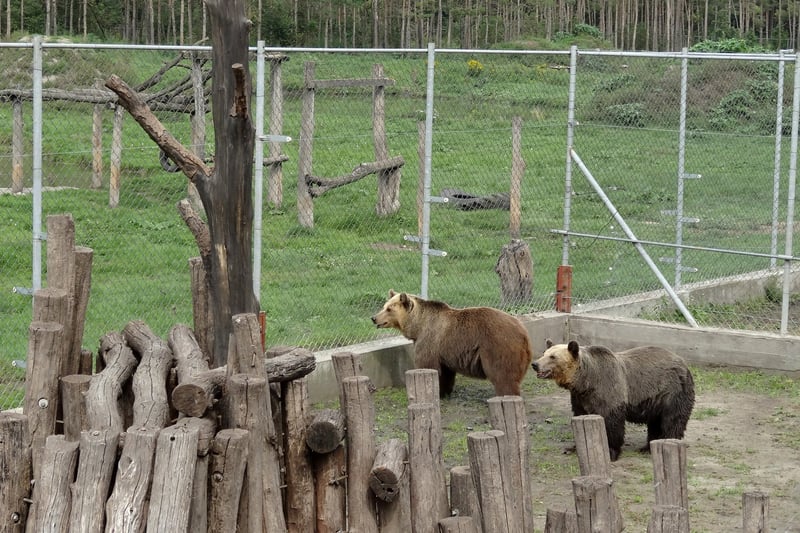
A new place to call home for Spanish rescue bears
News
Thanks to our supporters, we've been able to transport two sister bears from a rescue center in Spain to a spacious new home at a bear sanctuary in Hungary.
The two European brown bears, Laica and Mel, were born in the Vallcalent Wildlife Rescue Center in Lleida, Catalonia, their parents having previously been rescued from cruel captivity. For 19 years they knew a large, caged enclosure as their only home.
Finding a sanctuary
Although well cared for at the rescue center, the Government of Catalonia sought a new home for the two sister bears, realizing that center was too small and didn’t provide them with enough stimulation.
“They wanted to give the bears more freedom and a more appropriate environment, and knew that the sanctuary in Hungary could do just that,” explains our Wildlife Advisor Victor Watkins.
The 8.6 acres hectare sanctuary was designed and built with the help of World Animal Protection supporters in 1998. It is now home to 34 bears rescued from captivity and exploitation and is run by the municipality of Veresegyház.
A long journey
The sanctuary were happy to rehome Laica and Mel – but asked us for help to fund the bears’ move from Spain to Hungary. The generosity of our supporters helped pay for vet costs, transport crates and a specialized lorry to take the sisters on their long, 24 hour journey to their new home.
Laica and Mel arrived safely and Victor says they are settling in well, “It is great to see them exploring their new surroundings. They came out of their transport crates very cautiously at first when they saw the huge areas of grass and trees in their new home. But then they went straight into their pool in the quarantine area and sat in the water relaxing.
After their first meal of apples they then sat by the fence watching the other bears in the grassy areas of the main sanctuary. In a few weeks they’ll be joining them.”
Laica and Mel will now live the rest of their days in as natural an environment as possible – with pools to swim in, trees to climb and acres of woodland to explore.
The generosity of our supporters helped pay for vet costs, transport crates and a specialized lorry to take the sisters on their long, 24 hour journey to their new home.